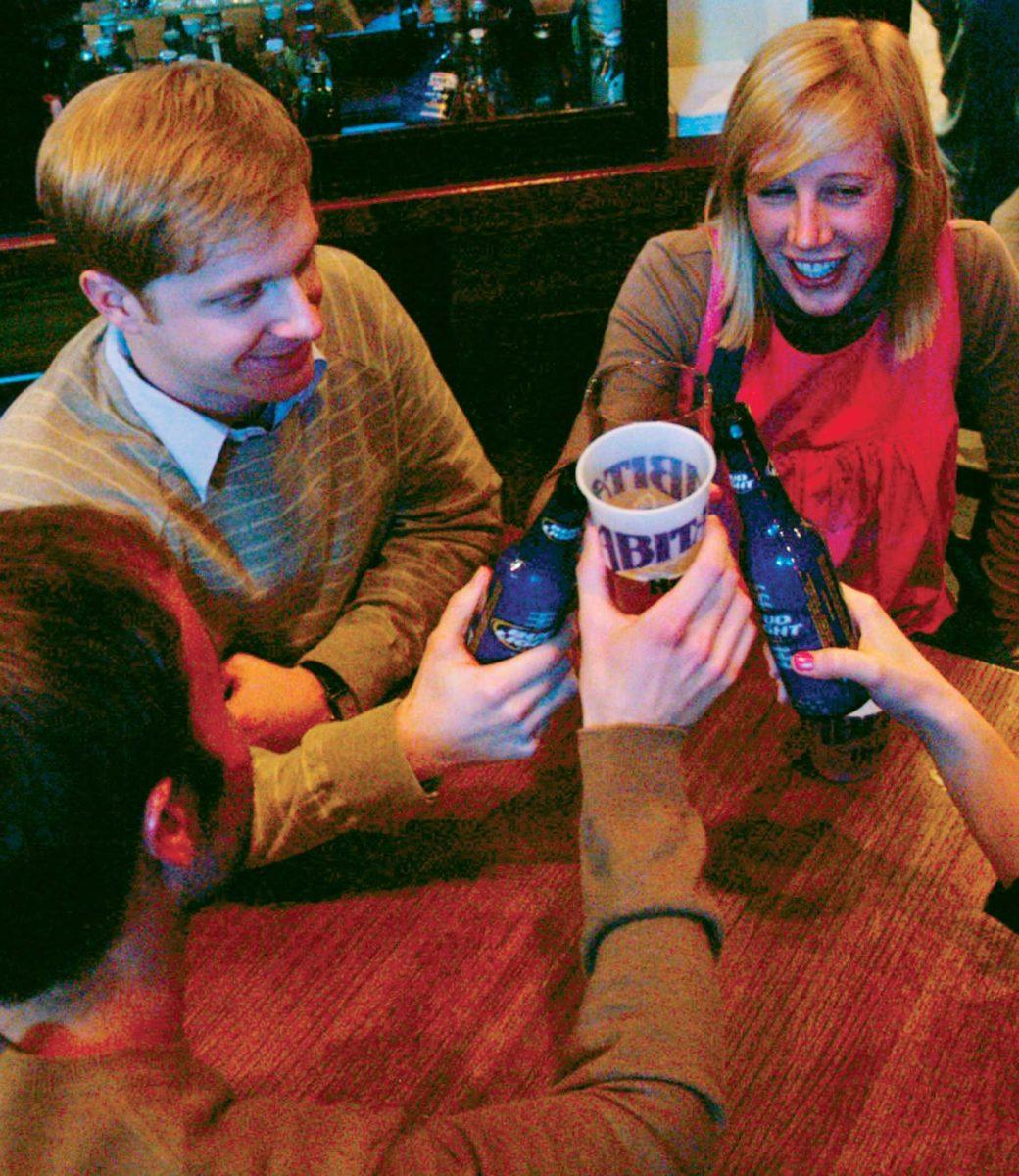Beer cups littered the sidewalks as a line wrapped around the porch of Serrano’s on Highland Road on Saturday evening. And the crowd of pub-crawling patrons packing Northgate-area bars may have shared more common bonds than multicolored wristbands and intoxication.The more than 2,000 people — mostly students — who participated in the Abita Pub Crawl could share similar genes. A new Harvard-based study found genetic makeup influences a person’s popularity, social skills and even the willingness to go out partying. Harvard professor Nicholas Christakis and two University of San Diego professors, James Fowler and Christopher Dawes, published the study Jan. 26 in the Proceedings of the National Academy of Sciences.”These results allow us to reject the hypothesis that genes have no effect on human social networks,” the study said. “Genes give people individuality.” Christakis declined an interview with The Daily Reveille, but his Web site says his studies focused on exploring two aspects of social networks — “The process by which they form and the way they operate to influence behavior.” The idea of genes affecting your behavior is not surprising, said Steven Pomarico, LSU biology professor. Some of a person’s behavior is determined by their physical appearance, which is determined primarily by genes, he said. “Genes seem to somehow have an effect on if you are seen as more or less likable,” Pomarico said.The research studied 1,110 identical and fraternal twins to compare genetically similar or identical people. The results show a genetic link to likability and popularity, which make some people more apt to be considered a friend by others. “Your genes may in fact influence more what you project than what you perceive,” Pomarico said, based on the study. For example, Pomarico said if someone is a warm, outgoing person, they will be seen more easily as a friend. The genes could affect a person’s behavior, and in many cases it applies to physical features, he said. Many studies have shown people want to view good-looking people as their friends. Jordan Neldare, biology senior, said he gets his outgoing personality from his dad.”He makes everybody laugh,” he said with a smile, explaining he can do the same. On the other hand, Charlie Ho, political science senior, said he likes to party three times a week, is the exact opposite of his introverted parents. “I love drinking with strangers,” Ho said, explaining his favorite reason for going out is meeting new people. While a person’s genes have something to do with their personality, Graham Bodie, LSU communications studies professor, said how a person was taught is a big factor.”A lot of it has to do with the training we receive,” Bodie said. Bodie said his research on people’s behavior is concerned with observing the environmental factors. “[We] can’t do anything about our genes,” Bodie said. “But we can do things about our environment.” The family where a person was raised and even courses taken in college are environmental factors that can impact behavior and the ability to be social, he said. Bodie said another problem with the research is the study assumes identical twins share 100 percent of their genes. The problem is identical twins can have potential differences, he said. Loretta Pecchioni, communication studies professor, said some people are inherently extroverted and others are introverted. But the idea of nature and nurture both go together, Pecchioni said. “Is there a gene trait that makes us more social? Or was this what was modeled for us?” she said. “The simple answer is both.” People are born sociable because babies have a primitive drive to get attention in order to be fed, Pecchioni said. Since babies develop at such a young age, it’s hard to identify at that age how much of their behavior is hereditary and how much is learned by the parents, she said. A person’s environment can enhance a genetic behavior, Pecchioni said. If a person is depressed and people ignore them, they can become more depressed. The good news for more introverted people is they can still have their social needs met from a closer group of friends, Pecchioni said. “Maybe you don’t need a 100 [friends],” she said. Laura Rachal, French and biology senior, said she only likes going out about every other week. Instead of a noisy bar with people blocking her in, she prefers to talk with her close group of friends”I prefer conversations to body impact … and sweat,” Rachal said. —-Contact Joy Lukachick at jlukachick@lsureveille.com
Study suggests some people’s party habits could be a result of genetics
February 3, 2009




